Copper has an exchange program with selected magazines, where we share articles, including this one, between publications. This one's from PMA Magazine: the Power of Music and Audio.
Welcome to my series Treasures from the Vinyl Vault. In it, I will feature select gems from my approximately 12,000 ever-growing vinyl collection, accumulated over a 45-year period and counting.* This will not be your typical “Greatest Of All Time” list, but more of a guided tour, occasionally accompanied by an anecdote or two, of the singles and albums in my collection that are most precious to me, both for their historical value and the impact they’ve had on my musical journey. In order to cover the greatest number of them, I will not go into much detail about the record’s history or its sound quality – for those aspects I invite you to visit my Top 500 SuperSonic List at https://soundevaluations.blogspot.ca/.
Records will be presented in chronological order based either on their recording date or original release date, and not reissue date – which means, for example, that Miles Davis’ iconic Kind of Blue album will be featured only once, in 1959, despite its many remasterings and repressings over the years. Also, all pressings are US ones unless specified otherwise. If ‘mono’ is not indicated, then consider it stereo or that the stereo version of it is my de facto choice of the two. Let’s continue, shall we?
Chet Baker – Chet Baker Sings
Pacific Jazz – PJLP-11 (mono) (1954), 10-inch, PJ-1222 (1956), 12-inch LP, Tone Poet Series – B0031300-01 (2020), 33-1/3 RPM. Genre: cool jazz, West Coast jazz, vocal jazz, swing
Well recognized for his smooth, romance-infused cool jazz, trumpeter and vocalist Chet Baker’s recordings are ideally suited as a gateway into jazz for those who want to explore the genre gradually. Chet Baker Sings is my favorite album of his, among others I have, many on the Riverside label. Originally recorded in February, 1954 at Capitol Studios in Hollywood, California, and released as an 8 track, 10-inch album later in May, it got re-released under the same title two years later as a 12-inch LP with six additional tracks on the Pacific Jazz label. The latter – renamed World Pacific by 1957 – specialized in West Coast jazz, so-called due to its geographic location, versus the lesser-referenced East Coast jazz, known for the hard bop sound flourishing in New York. Joining him on the first date were Carson Smith and Joe Mondragon on bass, Bob Neel, and Shelly Manne and Lawrence Marable on drums, while on the second date were Jimmy Bond on bass and Peter Littman on drums, while Russ Freeman, on piano and celesta, appeared on both sessions.
The 14 tracks span smooth swinging to soft ballads, and includes Baker’s signature tune “My Funny Valentine,” sung in a melancholic mood and forever defining his sound. Engineers Allan Emig and Phil Turetsky knew what they were doing, while the musicians knew how to listen to one another. Kevin Gray, accompanied by Joe Harley, did an outstanding all-analog remastering and cutting job, turning out what I consider one of the best-sounding mono LPs I’ve heard on my system. Pressed on 180-gram vinyl by RTI, the sound is warm, intimate, and balanced from bottom to top, while the packaging and presentation are top notch. You can’t ask for more.
Dizzy Gillespie and Roy Eldridge – Diz and Roy
Verve Records – VE-2-2524 (mono) (1977), (2×33-1/3 RPM), jazz, bebop, ballads.
My partner in record-collecting crime just recently found this low-priced gem. It's a double-LP compilation from 1977 that reunites 15 tracks taken from the following Verve albums: The Trumpet Kings, Trumpet Battle, and Tour de Force. Sides A, B, and C were recorded in October, 1954, while side D dates from November, 1955. The dueling Dizzy and Roy are in top shape performing a mixture of bebop tunes and ballads. Louie Bellson and Buddy Rich share drum duties, Ray Brown is on bass, Herb Ellis is on guitar, and Oscar Peterson is on piano. The mono sound is quite impressive, with the trumpets especially dynamic, natural, and biting. Great mastering job by Bob Ludwig.
Horace Silver and The Jazz Messengers – Horace Silver and the Jazz Messengers
Blue Note – BLP 1518 (mono) (July or October 1956), Classic Records – BLP 1518 (2006), 33-1/3 RPM, jazz, hard bop
This repackaged album is the second-oldest Blue Note LP in my collection after Thad Jones’ Detroit-New York Junction [BLP 1518]. Previously released on two individual 10-inch LPs recorded in November, 1954 and February, 1955, this record is a fine example of the newly-emerging hard bop subgenre typified by New York City’s Blue Note label. Blue Note was the leading exponent of this style, which combined the seeds of bebop, blues, rhythm and blues, and gospel music. Nearly all Blue Note LPs were produced by founder Alfred Lion and recorded by Rudy Van Gelder – hence, the famous RVG inscription on the record’s “dead wax,” or lead-out groove. RVG developed a signature sound that some adore and others deplore – in a nutshell, one that contains fantastic brass and drum sounds, with more often than not subpar bass and piano, and some form of level compression. Here, we have Silver on piano, Kenny Dorham on trumpet, Hank Mobley on tenor sax, Doug Watkins on bass, and the one and only Art Blakey on drums – the latter frequently leading the Jazz Messengers through its many incarnations. These two sessions, and all those up to July 1959, were done at Rudy Van Gelder’s first studio, located at his parent’s home in Hackensack, New Jersey, where the overall sound was more intimate and less reverberant than that at his second studio. My 200-gram pressing is the 2006 Classic Records reissue cut by Bernie Grundman, which is quite excellent.
Miles Davis and Milt Jackson – Quintet/Sextet
Prestige – PRLP 7034 (mono) (August 1956), 33-1/3 RPM, jazz, bebop, hard bop, cool jazz
Recorded one year prior to its release date, Quintet/Sextet – along with Relaxin’ – is probably my favorite Miles album of his Prestige years. The pairing of Davis and vibraphonist Jackson, who, by that time, was in full swing with the Modern Jazz Quartet (MJQ), combines the energy and spirit of bebop via a cool vibe. Replacing Rollins on tenor, a young Jackie McLean on alto channels the spirit of Parker on two of the four tracks, which happen to be my favorite ones on the album, not that surprising given my strong appreciation for the altoist in later Blue Note releases. Prestige “house drummer” Art Taylor sets the tempo, Percy Heath, another MJQ member, is on bass, and Ray Bryant is on piano. The last track is the only ballad, the first three ranging from mild swinging to a more up-tempo bop. Van Gelder repeats his sonic recipe in the same locale as the prior selection. I was lucky to find an original RVG cutting and pressing in fairly good shape many years ago before prices skyrocketed. Typical for an original Prestige, the sound is quite good, emphasizing slightly the vibes and brass over the rhythm section.
Frank Sinatra – Songs for Swingin’ Lovers!
Capitol Records – W 653 (mono) (March 1956 ), 33-1/3 RPM, swing, traditional pop, ballad, big band vocal, jazz
Recorded between October, 1955 and January, 1956, this was Frank’s fourth album for Capitol out of a total of 16 for the label, and is one of my all-time favorite albums of his. There are 15 tracks in total, mostly vocal jazz standards from the Great American Songbook by the likes of Gershwin, Cole Porter, and Johnny Mercer. Not one is weaker than the other when interpreted by this song master who had just turned 40. Nelson Riddle arranged and conducted the orchestra, as he did on several occasions where he accompanied Sinatra.
For more from Claude Lemaire, visit: https://soundevaluations.blogspot.ca/
*I would be remiss not to mention that some of those 12,000 records I share with a fellow vinyl hunter, co-conspirator, and lifelong friend.

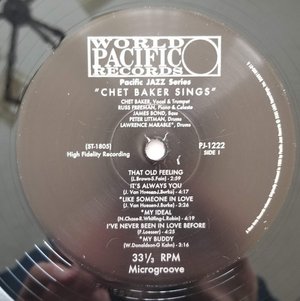
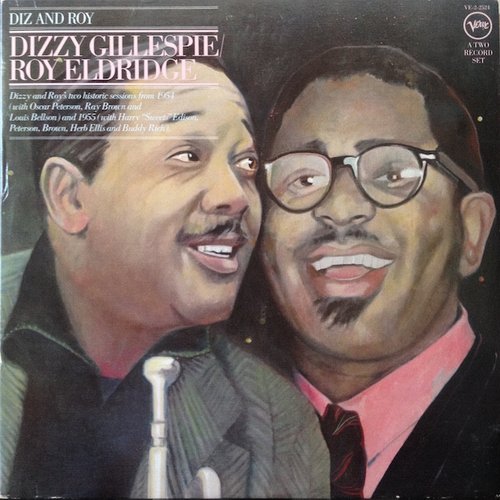

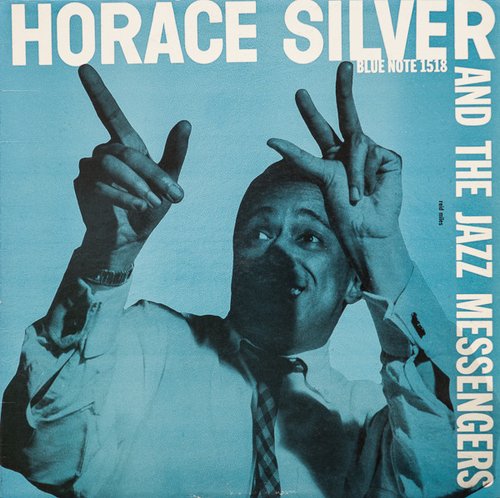
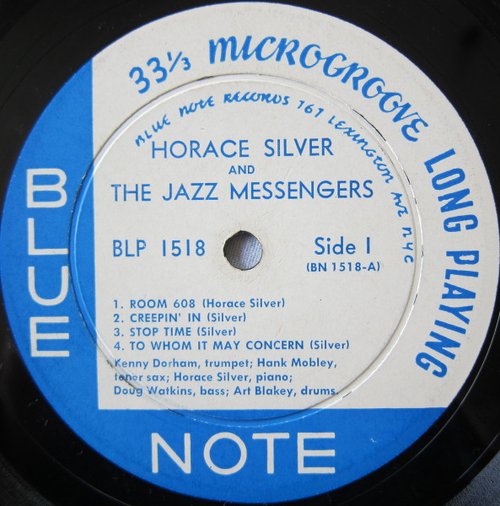
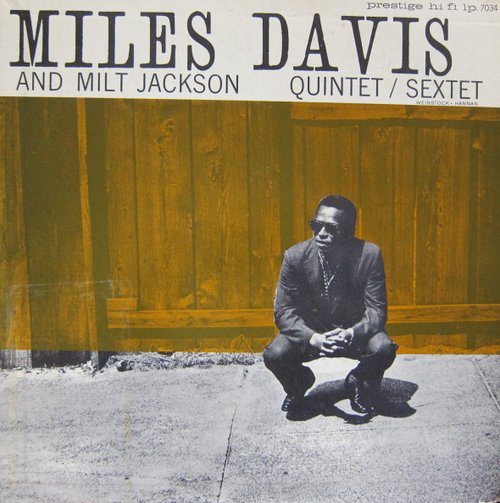
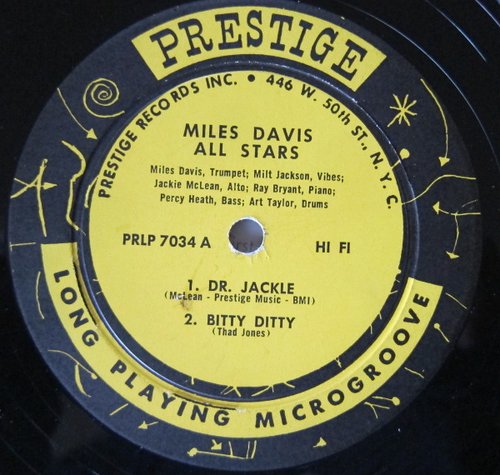
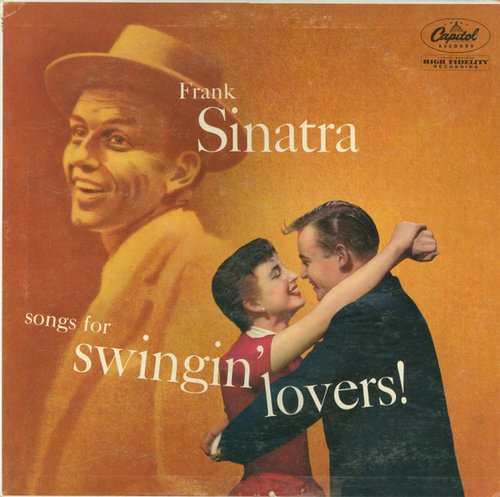
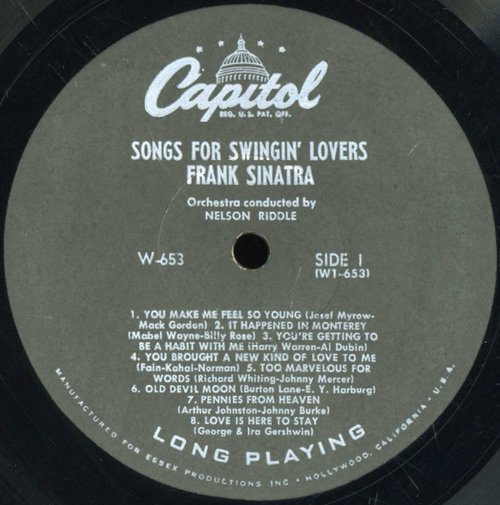












0 comments